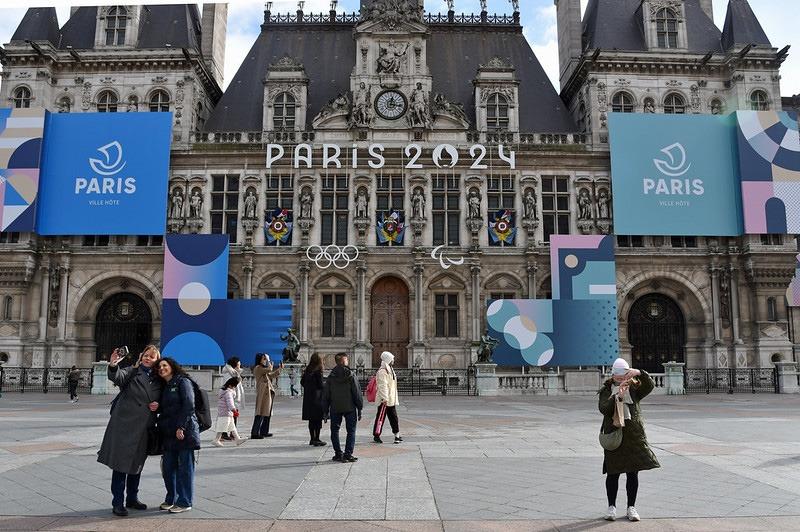On July 26, the best athletes in the world will convene in historic Paris, France, for the 33rd Summer Olympics. Marking the centennial of the 1924 Olympics also held in Paris, these games are intended to be a grand, extravagant showcase of French culture; they are also a potential terrorist target for a variety of groups around the world.
Perhaps no event exemplifies this dichotomy more than the planned opening ceremony. For as long as the Olympics have existed, the opening ceremony has taken place in some sort of stadium.
Not this year.
This year, over 10,000 athletes will step foot onto 180 boats that will embark on a procession through the heart of Paris via the River Seine. Sure to be a ceremony like no other, the flotillas will depart from the Austerlitz bridge before passing by iconic landmarks such as the Notre Dame Cathedral and the Place de la Concorde. The parade will come to a stop at the Place du Trocadéro right next to the Eiffel Tower.
On its face, the ceremony sounds spectacularly impressive. For Paris security, however, it is something of a nightmare. Originally, the event was supposed to have around 600,000 spectators along the banks of the Seine. Due to security concerns, however, this number was reduced to around 300,000 spectators, 104,000 of which are paying ticket holders, with another 222,000 watching for free from the upper banks, according to AP News.
This reduction is partly due to the increased risk of terrorist threat, according to The Athletic. Following the March terrorist attack widely attributed to ISIS-K on a concert hall in Moscow, France raised its terrorist warning to the highest level. The ongoing wars in Ukraine and Gaza further serve to complicate security of the global event, with French President Emmanuel Macron stating in a recent press conference that he “has no doubt Russia will target the Paris Olympics.”
Due to its incredibly public nature, the opening ceremony is perhaps the event most at risk of attack; the countless number of rooftops the parade will sail past have been cited as a point of particular emphasis for Paris and Olympic security officials.
The unique opening ceremony is not the only remarkable event planned for these Olympic Games, however. The most widely discussed events aside from the ceremony are certainly the open-water swimming events, which are planned to take place in the River Seine as well.
For hundreds of years, sewage water has infested the waters of the Seine, primarily due to overflow from large rainstorms. However, in the past decade, Paris Mayor Anne Hidalgo has overseen a massive clean up project in order to make the famous river swimmable. For the most part, it has been successful; Olympic officials maintain that unless it rains for months straight, the Seine will be safe to swim in for these events.
Organizers for the Olympics want to showcase as much of Paris as possible. In addition to the open-water swimming events in the Seine, there will be a temporary 12,860-capacity stadium built on the Champ de Mars, the green space in the shadow of the Eiffel Tower that is planned to host beach volleyball events.
Meanwhile, equestrian events are set to take place at the Palace of Versailles, boxing and tennis events are planned to take place at Roland-Garros — the iconic location of the French Open — and archery events are planned to take place at the Esplanade des Invalides, one of the most iconic monuments in a city full of iconic monuments.
The Olympics are set to take place from Friday, July 26 through Sunday, Aug. 11 and will be broadcast nationwide on NBC.







